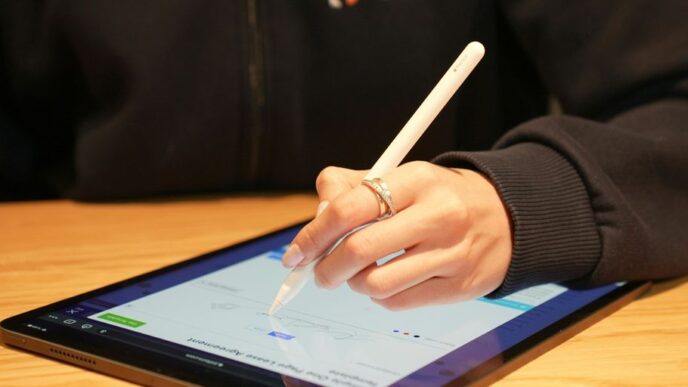Digital technology is revolutionizing diabetes management, making treatment and prevention more accessible for millions. Recent advancements in digital health tools are enabling better monitoring, personalized care, and improved communication between patients and healthcare providers. This article explores the latest innovations and their impact on diabetes care.
Key Takeaways
- Over half a million people in Louisiana are affected by diabetes, highlighting the need for effective management solutions.
- Continuous glucose monitors, like Dexcom’s Stelo, provide real-time data to help patients manage their condition more effectively.
- Digital health technologies are enhancing patient outcomes through individualized care and efficient communication.
- Collaborations between healthcare institutions and tech companies are crucial for advancing digital transformation in healthcare.
The Burden of Diabetes
Diabetes is a significant health concern, with over half a million individuals in Louisiana alone diagnosed with the condition. The American Diabetes Association emphasizes the importance of effective management strategies to alleviate the burden on patients and healthcare systems.
Yun Shen, an assistant professor at the Pennington Biomedical Research Center, has been at the forefront of research into how technology can aid in diabetes management. According to Shen, advancements in digital health tools are changing lives by providing patients with the ability to track their glucose levels and understand how their lifestyle choices impact their health.
Innovations in Diabetes Management
Recent innovations in digital health technology are transforming diabetes care. One notable advancement is the introduction of continuous glucose monitors (CGMs), such as Dexcom’s Stelo. This device allows users to receive glucose readings every 15 minutes via Bluetooth, enabling them to make informed decisions about their health in real-time.
The integration of artificial intelligence (AI) into these devices further enhances their capabilities. AI algorithms can analyze glucose data to predict future trends, helping patients and healthcare providers adjust treatment plans proactively.
The Role of Digital Health Technologies
Digital health technologies are not only improving monitoring but also facilitating personalized care. According to a recent editorial published in Frontiers in Endocrinology, digital tools offer unprecedented opportunities for better patient outcomes. Key benefits include:
- Improved Monitoring: Continuous tracking of glucose levels allows for timely interventions.
- Individualized Care: Tailored treatment plans based on real-time data enhance patient engagement and adherence.
- Efficient Communication: Digital platforms enable seamless communication between patients and healthcare providers, fostering collaborative care.
Collaborative Efforts in Healthcare
The collaboration between healthcare institutions and technology companies is essential for driving innovation in diabetes management. For instance, Hospital Sant Pau in Barcelona has partnered with Huawei to enhance its digital capabilities. This partnership focuses on improving data storage and security, ensuring that patient information is protected while enabling efficient access to medical records.
Dr. Alfons Torrego, Medical Director at Sant Pau Hospital, emphasizes the importance of such collaborations in achieving digital transformation in healthcare. By leveraging advanced technologies, hospitals can provide more efficient and effective care to patients.
Conclusion
The integration of digital technology in diabetes management is paving the way for a more accessible and effective healthcare system. As innovations continue to emerge, the potential for improved patient outcomes and enhanced quality of life for those living with diabetes is greater than ever. The ongoing research and development in this field will undoubtedly lead to further advancements, making diabetes care more personalized and efficient for all.
Sources
- Digital technology and diabetes: Research and upgrades making treatment and prevention more accessible, WAFB.
- The role of digital technology in diabetes prevention and management, MSN.
- Digital health technologies play a transformative role in diabetes management and prevention, MSN.
- Hospital Sant Pau and Huawei join forces to accelerate digital transformation in healthcare – EU Reporter, EU Reporter.
- NOV launches its digital technology centre in Kochi, India – Investment Monitor, Investment Monitor.













